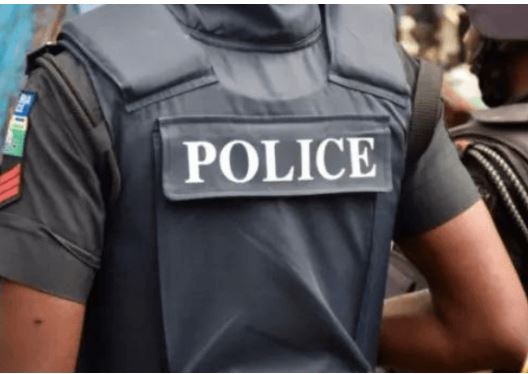As Nigeria battles escalating violent crimes, including mass abductions and community attacks, advocacy for decentralised state policing has resurfaced with renewed urgency.
Many citizens, security experts, and political stakeholders argue that a localised policing structure could improve response time and strengthen intelligence at the grassroots level.
InfoStride News reports that in recent days, the country has recorded multiple attacks exposing weaknesses in its centralised policing architecture.

Over 300 pupils and teachers were abducted by gunmen from St. Mary’s Catholic Primary and Secondary Schools in Papiri, Niger State — an incident widely compared to the 2014 Chibok schoolgirl abduction.
In Kebbi, 25 students from the Government Girls Comprehensive Secondary School in Maga were kidnapped, while the vice principal was killed during the attack.
Also last week, bandits attacked a parish of the Christ Apostolic Church in Eruku, Kwara State, abducting worshippers and killing three parishioners.
On Sunday, the Nigeria Police confirmed the killing of five officers in Bauchi State and the abduction of 12 female farmers in Gwoza, Borno State, by suspected terrorists.
The affected Kebbi students and Kwara worshippers were later released, but the Niger schoolchildren remain missing.
South-West governors renew state police advocacy
The South-West Governors’ Forum, on Monday, reiterated calls for state police following a closed-door meeting held in Ibadan, Oyo State’s capital.
Lagos State Governor, Babajide Sanwo-Olu, chaired the meeting, which had in attendance Governors Dapo Abiodun (Ogun), Lucky Aiyedatiwa (Ondo), Biodun Oyebanji (Ekiti), the host, Seyi Makinde (Oyo), and other officials from six South-West states.
A communiqué issued at the end of the meeting revealed that the states agreed on coordinated security operations, rapid-response strategies, and shared regional intelligence across Lagos, Ogun, Oyo, Osun, Ondo, and Ekiti.
The governors declared that the establishment of state police “can no longer be delayed.”
Governor Sule aligns with governors’ consensus
Nasarawa State Governor, Abdullahi Sule, welcomed the South-West push, saying it aligns with a prior agreement reached by 35 of Nigeria’s 36 state governors.
Speaking on the Prime Time programme of Arise Television on Tuesday, Sule said state policing requires legislative approval by the National Assembly to form the necessary legal framework.
He argued that current state security collaborations — including vigilante groups and joint security task forces — remain insufficient compared to a structured state police system.
“I am also in agreement with them. We should work as hard as possible to ensure we have state police,” Sule said.
Lagos APC endorses state policing reform
The Lagos chapter of the All Progressives Congress (APC) also backed calls for state police, urging the Federal Government to expedite legislative and regulatory processes to actualise decentralised policing across the country.
In a statement on Tuesday, the party described the demand as timely and strategic, adding that only “enemies of peace” would oppose the reform.
“The security of our people is non-negotiable. The time for State Police is now,” the communiqué read.
Analyst warns policing reform may fail without funding, willpower
Meanwhile, Public Affairs Analyst, Nduka Odo, cautioned that establishing state police may not solve insecurity unless supported by funding, training and political commitment.
In an interview with DAILY POST on Tuesday in Osogbo, Odo said Nigeria’s security failures were rooted in systemic under-training, under-funding and lack of professionalism — not the physical location of police authority.
He warned that, without sustained institutional commitment, state policing could become another expensive, ineffective intervention.
“The Nigeria police are under-trained and under-funded. Without proper capacity building and genuine political will, establishing state police will be a waste of resources,” Odo said.
Odo insisted that if state policing is pursued, it must be professionally equipped, independently regulated, and supported by honest political leadership at both federal and state levels.
Background on defection-related alignment clarified
InfoStride News notes that growing advocacy for state police also comes amid party-alignment concerns and strategic repositioning by political actors ahead of Nigeria’s 2027 election cycle.
Support InfoStride News' Credible Journalism: Only credible journalism can guarantee a fair, accountable and transparent society, including democracy and government. It involves a lot of efforts and money. We need your support. Click here to Donate
